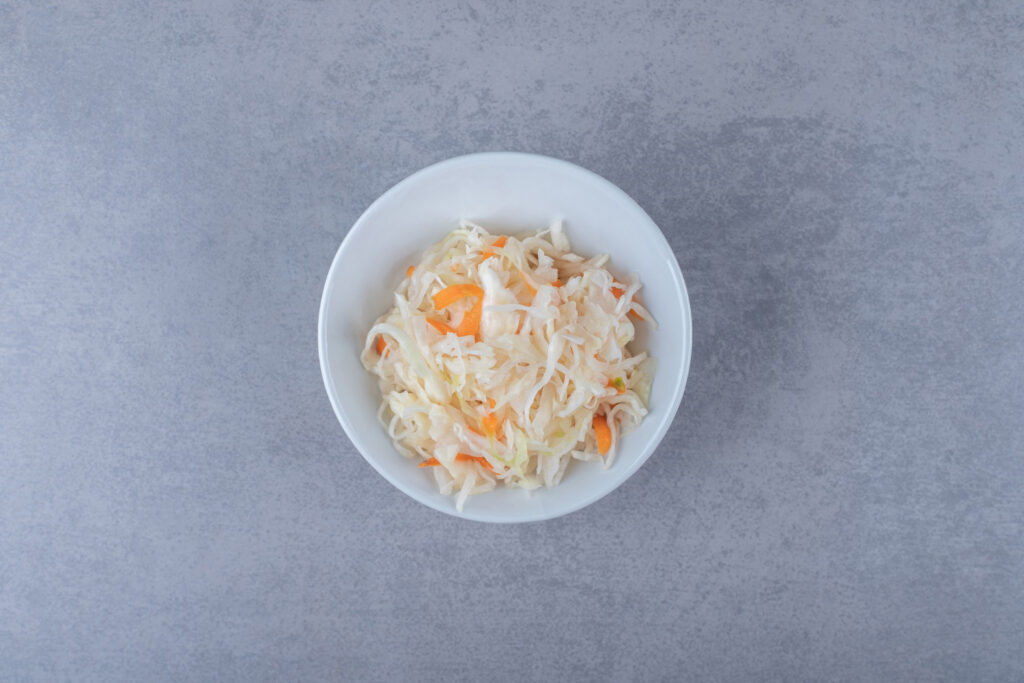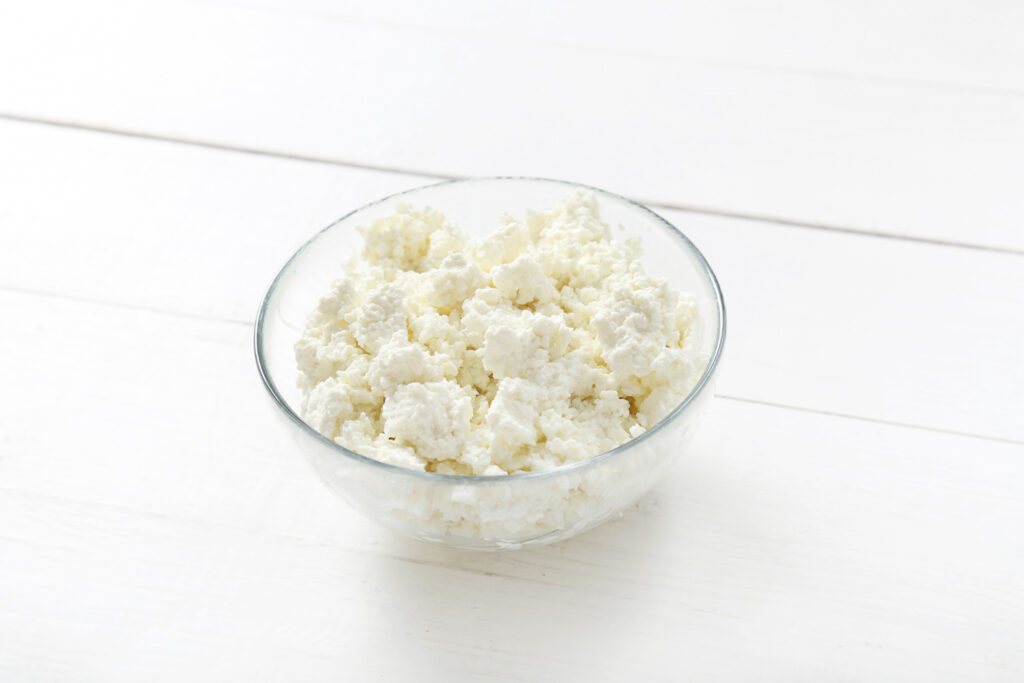Fermented foods, such as sauerkraut, serve as excellent sandwich toppings. However, did you know that by adding fermented cabbage to your Reuben, you are also introducing probiotics? Probiotics are beneficial bacteria that thrive in our digestive system, potentially enhancing digestion, strengthening immunity, and promoting a healthy weight.
Research is continuously advancing to shed light on the significance of these powerful microbes for our overall well-being, and the findings thus far are quite promising. Numerous studies indicate that probiotics have the potential to offer assistance in various health conditions, such as diarrhea, irritable bowel syndrome (IBS), hay fever, infant colic, and periodontal (gum) disease.
Fermented foods are rich in probiotics, which are beneficial bacteria that thrive during the fermentation process. Consuming these foods is an effective method to enhance your gut health.
We are introducing seven fermented foods that can be seamlessly incorporated into your diet, providing a substantial boost of beneficial bacteria for enhanced well-being.
7 Fermented Foods For Your Gut Health
1. Sauerkraut

Sauerkraut is not only a delicious topping for hot dogs but also a versatile and nutritious food. Made simply from cabbage and salt, this fermented delight offers a wealth of health benefits, including a generous supply of probiotics and fiber.
In fact, a recent study published in Foods in 2018 revealed that sauerkraut’s microbiome, which consists of thriving colonies of beneficial bacteria, experiences rapid growth during the fermentation process and remains stable even after packaging for commercial sale.
You have the option to either create your own sauerkraut or purchase it from a store. However, it is worth noting that the sauerkraut found in the refrigerated section contains a higher amount of probiotics compared to the shelf-stable canned or jarred alternatives.
This is due to the fact that refrigerated sauerkraut is not subjected to pasteurization. It is important to understand that pasteurization eliminates both harmful and beneficial bacteria present in sauerkraut and other fermented foods.
2. Kimchi

Kimchi, a spicy Korean side dish crafted from fermented cabbage and various vegetables, has gained recognition for its potential anti-cancer properties and other health benefits. A comprehensive review conducted in 2018 revealed that kimchi exhibited numerous positive effects on human health during clinical trials.
These benefits encompassed the reduction of lipid levels, support for maintaining a healthy weight, alleviation of blood pressure, and mitigation of inflammation.
3. Kefir

Kefir, a fermented milk beverage akin to drinkable yogurt, is renowned for its abundant calcium content and probiotic properties. Recent research conducted in 2021 indicates that kefir holds promising potential for addressing various health concerns, including diabetes, cardiovascular disease, immunity, and neurological disorders.
Similar to yogurt, kefir contains probiotics that aid in the breakdown of lactose, making it a potentially more digestible option for individuals with lactose intolerance. Kefir can be enjoyed either on its own or incorporated into delightful smoothies.
4. Kombucha

Kombucha is a tangy and effervescent fermented tea that is abundant in beneficial yeast and bacteria. This delightful beverage is frequently infused with herbs or fruit to enhance its flavor. Whether you prefer shopping at natural food stores, farmers markets, or your local grocery store, you can easily find kombucha.
A study published in the journal Nutrients in 2019 sheds light on the antioxidant properties of kombucha as well as its beneficial bacteria. However, it is important to note that there is currently a lack of randomized clinical trials investigating the effects of kombucha on human health.
5. Miso

Miso, a fermented paste crafted from barley, rice, or soybeans, imparts a delightful umami flavor to various dishes. Its bold taste is best savored in moderation, as a little goes a long way. However, it is worth noting that miso is also relatively high in sodium content.
A study conducted by BMJ in 2020 revealed a correlation between increased consumption of miso and a decreased risk of premature mortality. Miso, commonly used in soups, also enhances flavor and promotes gut health when used in salad dressings and marinades.
6. Tempeh
Tempeh is derived from the natural fermentation of soybeans. It shares similarities with tofu, as both are plant-based proteins derived from soy. However, unlike tofu, tempeh undergoes a fermentation process.
It also possesses a firmer texture and a subtly nutty flavor profile. Moreover, due to its inclusion of all the essential amino acids, it serves as a comprehensive source of vegetarian protein.
According to a comprehensive review conducted in 2021, tempeh has demonstrated promising health benefits for a wide range of conditions. These include enhancing gut health, combating cancer, improving cognitive function, promoting lung health, supporting cardiovascular well-being, boosting liver health, fortifying bone health, and managing type 2 diabetes.
You Can Also Read: Nighttime Skincare Routine: Transform Your Skin with the Best Care Routine
7. Yogurt
Yogurt is produced through the process of fermenting milk. When yogurt has the Live & Active Cultures seal, it guarantees the presence of 100 million probiotic cultures per gram, which equates to about 17 billion cultures in a 6-ounce cup at the time of manufacture.
Even yogurts without this seal contain probiotics. These beneficial bacteria found in yogurt aid in the digestion of lactose, the sugar present in milk. Therefore, individuals who are lactose-intolerant may still be able to relish yogurt. Moreover, numerous companies offer dairy-free and vegan alternatives to yogurt that also incorporate probiotics.
According to a comprehensive review conducted in 2021, there exists a consistent correlation between the consumption of yogurt and a decreased risk of developing colorectal cancer, type 2 diabetes, and an array of health benefits, including enhanced cardiovascular health, improved bone density, and a healthier gut.
Final Thoughts
Fermented foods are high in probiotics, which are good bacteria. These bacteria thrive in our digestive system and have a significant impact on our overall well-being.
Fermented foods are not only rich in health-boosting properties such as protein, fiber, vitamins, minerals, and antioxidants, but they also offer a myriad of benefits for your well-being. By incorporating fermented foods into your daily diet, you can significantly enhance your overall health.
